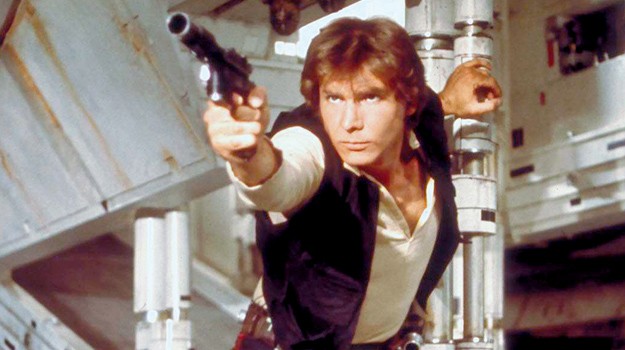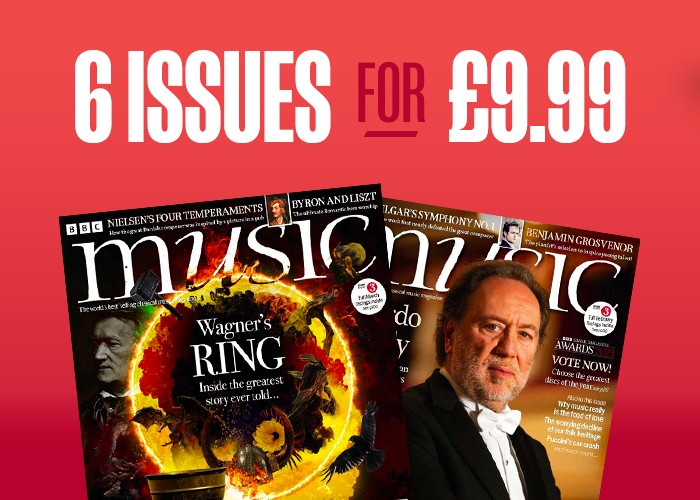Best Star Wars music: all nine Star Wars music scores ranked worst to best
How do all nine Star Wars scores stack up? Here's our ranking of the best and worst Star Wars music

Star Wars – Episode IX: The Rise of Skywalker is the final part of an incredible body of work by a single composer, John Williams.
John Williams, one of the best film composers in the world, has written each of the nine original scores for the generation-spanning film saga over a period of some 43 years, beginning in 1977.
While each individual entry was written as such, for a single film, Williams continually looked to what came before and built on the soundworld and growing library of thematic threads he had created each time. As such, themes and motifs composed for that first 1977 film crop up again, and again.
- Six of the best sci-fi movie soundtracks
- John Williams's 'Star Wars' theme named nation's favourite...
Indeed, the composer sees this set of scores as one body of work and Williams’s Ninth doesn’t disappoint. The Rise of Skywalker adds many new items to the canon while reflecting viscerally, and emotionally, on all that has come before. But where does this new, and final, score sit compared to the other eight?
Here’s our ranking of all of John Williams’s Star Wars music scores…
Best Star Wars music
#9 / Star Wars – Episode II: Attack of the Clones (2002)
London Symphony Orchestra; London Voices/John Williams
Even in last place, this score delivers thrills, spills and romance. Williams’s score suffered from heavy editing – particularly in the third act, but there are standout moments.
Top of the list is a tragic love theme, ‘Across the Stars’, for the forbidden romance between Anakin Skywalker and Padme (future parents of Luke Skywalker and Princess Leia).
There’s a chase in the skies above the city-planet Coruscant that will leave you breathless, but beyond that it’s a lot of action-heavy music designed to tie up disparate locations and story threads.
#8 / Star Wars – Episode III: Revenge of the Sith (2005)
London Symphony Orchestra; London Voices/John Williams
This third act of George Lucas’s ‘Prequel Trilogy’ (ie. films set before the original 1977-83 trilogy but made 20+ years after) delivers much drama, darkness and some absurdity. Williams takes it all in his stride, though, with broad Mahlerian strokes to underline Anakin Skywalker’s fall from grace – spoiler alert, he becomes Darth Vader – and what amounts to a Jedi genocide.
Probably the most choir-heavy of all the scores, it’s marvellous stuff but perhaps quite removed from the sound of Star Wars we know and love.
The appearance of babies Luke and Leia, and the ‘birth’ of Darth Vader, in the finale allows Williams to dust off some classic themes, though.
#7 / Star Wars – Episode VIII: The Last Jedi (2017)
Studio Orchestra; Los Angeles Master Chorale /John Williams & William Ross
The middle film of the most recent trilogy saw Williams build on an arsenal of new themes he introduced in The Force Awakens. There is rather less looking over the shoulder to ‘classic’ themes, though a much-anticipated ‘reunion’ of siblings Luke and Leia sees the return of the composer’s 1983 theme for the pair. Action music is rife, but not trivial; Williams seems to have been much-inspired and revels in it.
There’s lightness and brevity, too, with memorable new music for the resistance fighter Rosie, an unusual casino scene and rollicking music for a chase on horse-like creatures called ‘Fathiers’.
#6 / Star Wars – Episode IX: The Rise of Skywalker (2019)
Studio Orchestra; Los Angeles Master Chorale/John Williams
Williams’s final entry in this Star Wars saga doesn’t see him resting on his laurels or showing any signs of boredom.
Given this film ties up a story which began in 1977, Williams brings out many classic themes and moments to create bridges between plot moments and characters. It’s deftly done, sometimes thrillingly.
There’s an abundance of new material, too, with a lyrical new theme of belonging and destiny, a delightful speeder chase through the desert and no end of despicably dark modes for the evil Emperor – including an ‘Anthem of Evil’.
#5 / Star Wars – Episode I: The Phantom Menace (1999)
London Symphony Orchestra; London Voices/John Williams
This was Williams’s first return visit to the galaxy far, far away and the beginning of a new trilogy of films with director George Lucas. The 16-year gap had left fans anticipating greatly what a new Star Wars score would sound like.
There’s a sophistication and opulence to be found here, fresh sounds for colourful new worlds and characters. It remains an underrated score, one which is a masterclass is musical storytelling.
Williams cleverly pre-empts themes and material that would ‘follow’ in later instalments in the timeline. Indeed, his theme for the child Anakin Skywalker ends with a subtle quotation of what will be Darth Vader’s theme. The crowning glory of the score is ‘Duel of the Fates’, a choral-symphonic tone poem of sorts. With a complex story to set out, it’s Williams’s music which binds this galaxy together.
#4 / Star Wars – Episode VII: The Force Awakens (2015)
Studio Orchestra/John Williams, William Ross & Gustavo Dudamel
Given this most recent, and final, trilogy of films picks up some 35 years after the original trilogy ended, you’d expect John Williams to rely heavily on established themes. What he did, though, was embrace fully the new threads and faces that director JJ Abrams brought to life.
More like this
It feels like the composer was really inspired with this film and these characters, as he created a raft of new and memorable themes and motifs. At the heart of the score is ‘Rey’s Theme’, written for a character (and actress) who Williams admits enchanted him. The references to established musical material are effectively executed and have a lot of impact – in particular the reunion of the estranged Han Solo and Princess (General) Leia.
Gustavo Dudamel guest-conducted portions of the score, including the opening ‘Main Title’.
#3 / Star Wars – Episode VI: Return of the Jedi (1983)
London Symphony Orchestra/John Williams
The original third film in third place… by this point the soundworld and themes were well established and already much-loved.
There’s an emotional depth and charm to this score which can be overlooked. Williams composed new themes, including one for the ‘vile gangster’ Jabba the Hutt, an ominous choral chant for Emperor Palpatine and a colourfully riotous piece for the diminutive Ewok warriors.
The space and forest battle music is some of the composer’s finest, perfectly balancing pace, action, emotion and humour as the rebels triumph over the empire.
#2 / Star Wars – Episode IV: A New Hope (1977)
London Symphony Orchestra/John Williams
This is the one that started it all. George Lucas asked Williams for an old-fashioned symphonic film score and it was a request that would see a resurgence in thematic, orchestral music in films. It also secured Williams’s place at the top of the A-list of Hollywood’s composers and established what would really be his signature style.
The root of all the scores that followed is established here and with the familiarity of the ‘Main Title’ (aka Luke Skywalker’s theme) in mind, it’s easy to forget the rest of the score. It’s inventive, exciting and introduced a generation of filmgoers to the concert hall thanks to its life beyond the screen.
#1 / Star Wars – Episode V: The Empire Strikes Back (1980)
London Symphony Orchestra/John Williams
Williams could never have known just how impactful the first Star Wars film, and score, would be. With the follow-up, though, he knew what he was dealing with, so he could play around and dig a little deeper.
Themes returned, were embellished and an established soundworld was mined ever-deeper, eliciting some of the composer’s most dynamic and thrilling dramatic scoring. Highlights include the Battle of Hoth, the chase through the Asteroid Field and a nail-biting finale showdown between Luke Skywalker and Darth Vader.
There were strong new themes for this film, too, including a march for Vader, a furtive love theme for Han Solo and the Princess and a noble, poetic piece for the ancient Jedi Master, Yoda. It doesn’t get better than this.
Authors

Michael is the Reviews Editor of BBC Music Magazine. He was previously a freelance film music journalist and spent 15 years at St George's Bristol. Michael specialises in film and television music and was the Editor of MusicfromtheMovies.com. He has written for the BBC Proms, BBC Concert Orchestra, Royal Philharmonic Orchestra, Royal Albert Hall, Hollywood in Vienna and Silva Screen Records.




